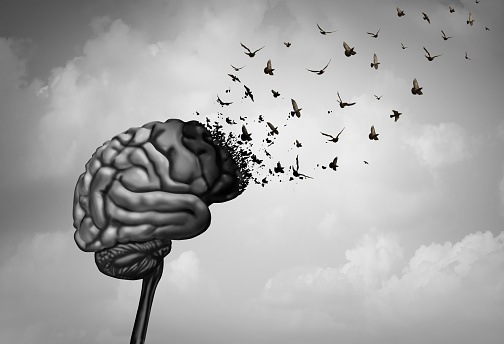
Cognitive function may decline more rapidly in individuals with psychotic disorders than in the general population, according to the findings of a new study which appeared in JAMA Psychiatry.
In this cohort study, called The Suffolk County Mental Health Project, researchers recruited 705 patients (mean age, 20) with a first-admission of psychosis, and assessed cognitive function at two and 20 years post-admission. All study subjects were enlisted from the 12 inpatient facilities across Suffolk County, NY. A control arm was recruited at year 20 using random digit dialing and were subsequently matched to the clinical cohort based zip code and demographic data.
The primary endpoint of this study was defined as the change in cognitive functioning in six domains: verbal knowledge, verbal declarative memory, visual declarative memory, attention and processing speed, abstraction-executive function, and verbal fluency. The data were collated between September 1991 and July 2015 and analyzed beginning in 2016.
According to the results of the study, cognition in individuals with a psychotic disorder declined on all but two tests, and these declines were linked associated with worsening vocational functioning (Visual Reproduction test II: r = 0.20; Symbol Digit Modalities Test–written: r = 0.25; Stroop: r = 0.24; P < .009), as well as worsening negative symptoms (avolition: Symbol Digit Modalities Test–written: r = −0.24; TMT-A: r = −0.21; Stroop: r = −0.21; all P < .009; inexpressivity: Stroop: r = −0.22; P < .009).
Overall, juxtaposed with patients in the control arm, the researchers observed that people with psychotic disorders showed age-dependent deficits in verbal knowledge, fluency, and abstraction-executive function, with the largest gap observed among participants 50 years or older.
“In individuals with psychotic disorders, most cognitive functions declined over 2 decades after first hospitalization,” the research authors wrote in their conclusion.
SCMHP shows #cognitivedecline in psychotic disorders over 18 years, but only in some domains this seems to exceed normal ageing https://t.co/oUSbMCjPeD
— JAMA Psychiatry (@JAMAPsych) December 11, 2019
“Observed declines were clinically significant. Some declines were larger than expected due to normal aging, suggesting that cognitive aging in some domains may be accelerated in this population. If confirmed, these findings would highlight cognition as an important target for research and treatment during later phases of psychotic illness.”
Although decline in cognitive function has long been reported in psychotic disorders, there's been a paucity of long-term cohort data on the topic. Here's a new paper in JAMA Psychiatry on this topic:https://t.co/teEZ9YXDmo
— Dost Öngür (@dost_ongur) December 11, 2019
New paper shows cognitive decline in psychosis over a 20 year period, associated with symptom & functional changes. Although study lacked a longitudinal comparison sample, declines in executive function & verbal memory more prominent vs data from independent national cohort. https://t.co/MnRSYBSU8J
— Dr Tamsyn VanRheenen (@TamsynVR) December 11, 2019







 © 2025 Mashup Media, LLC, a Formedics Property. All Rights Reserved.
© 2025 Mashup Media, LLC, a Formedics Property. All Rights Reserved.